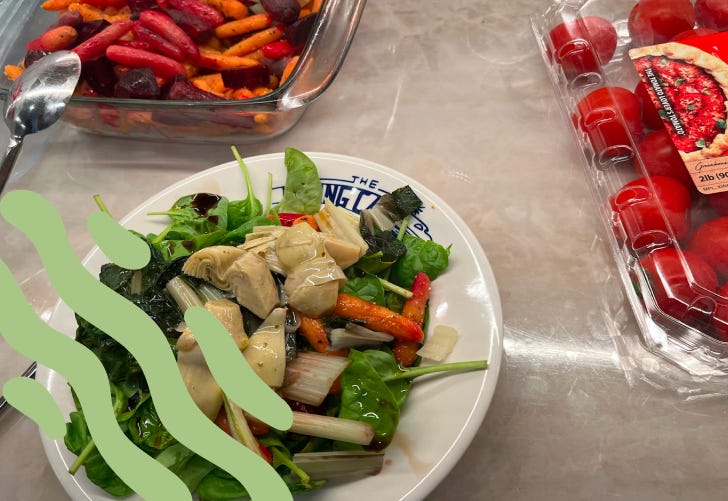Lifestyle Medicine for Knee Health
Food, Fitness, and Beyond
If you're like me, you might experience occasional knee pain—not severe enough to need surgery but bothersome enough to require a compression sleeve or patella strap to support and ease the strain.
Now you know why I didn’t want to miss the Stanford Health Library presentation on “Knee Arthritis – A Lifestyle Medicine Approach.” The presenter has impressive credentials. Michael Fredericson, MD, is professor of Physical Medicine & Rehabilitation (PM&R) at Stanford University, Director of PM&R Sports Medicine in the Department of Orthopaedic Surgery and Co-Director of the Stanford Longevity Center.
A few facts on knees:
The American Academy of Orthopaedic Surgeons (AAOS) reported 3.1 million hip and knee replacements from 2012 to 2022, a 23% increase from their prior report.
The American Association of Hip and Knee Surgeons (AAHKS) said total knee replacement surgeries are expected to rise by 673% to 3.5 million procedures by 2030.
Nearly half of Americans will develop knee osteoarthritis, according to AAHKS.
AAHKS said that more than 90% of patients will experience a reduction in pain in their knees after the surgery.
Dr. Fredericson’s talk covered osteoarthritis, lifestyle medicine (LM), supplements, and injections. The lecture got me especially fired up about LM. Stanford defines it as a process with seven elements: nutrition, sleep, fitness, stress management, social relationships, passion and purpose, and cognitive enhancement.
If any of these can help prevent problems they are worth a look. The goals are to boost longevity and improve your quality of life. If you want to determine how your lifestyle choices impact your health, try the Seven Lifestyle Levers Assessment. And here’s a link to a great archive of articles organized by “pillar.”
Dr. Fredericson’s Presentation
Joints are a problem. About 790,000 total knee replacement surgeries happen in the US every year. Many factors influence the risk, including past joint problems, infections, high BMI, bone mineral density, and diet.
Diet is something we can presumably control, and that’s where LM comes in. LM focuses on improving health through the seven pillars (nutrition, sleep, fitness, stress management, social relationships, passion and purpose, and cognitive enhancement). Dr. Fredericson said that LM can put the patient in the driver’s seat. He said LM treatments generally have limited to no side effects and benefit overall health.
Anti-Inflammatory Mediterranean Diet
When he started discussing the anti-inflammatory Mediterranean Diet, I was fascinated to learn that it is thought to “reduce inflammatory cytokines implicated in knee osteoarthritis (OA)” while aiding weight loss.
He pointed to a 2017 UK study of randomized knee OA patients. Participants were placed in either a diet or control group for 16 weeks. Results showed that the diet group reduced body mass, inflammatory cytokines, and “serum cartilage oligomeric matrix protein,” an indicator of progressive knee OA.
The presentation also discussed supplements like glucosamine/chondroitin and turmeric/curcumin, medications like acetaminophen, and newer treatments such as injections and cell-based therapies.
In addition, Dr. Fredericson discussed exercise, Tai Chi, water-based therapies, and foot orthosis for OA. Foot orthosis is a custom or prefabricated device inserted into a shoe to help improve foot mechanics and imbalances. Given that he highlighted this in his lecture, I obtained a lateral wedge on Amazon.
Food and Lifestyle Medicine
The range of therapies, including LM, demonstrated that there are many ways to address knee OA before you reach surgery. Protect your knees!
I combine knee braces, sleeves, straps under the kneecap, exercise, and LM to get through high-intensity exercises like CrossFit. Without these things and the understanding of the instructors and the Club in tailoring the exercises to the person (believe me, I need it), it would not be possible. And not all gyms are like this. So a HUGE shout out to CrossFit Wall Street.
Still, there are times when knee surgery is the only option. Fortunately, these surgeries are relatively common and have high success rates. According to AAOS, more than 90% of total knee replacements work well 15 years after surgery.
Food plays a role in both scenarios—with and without surgery. Its ability to contribute to knee health is another reason to eat as well as possible. Our knees will thank us!




